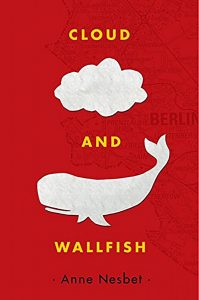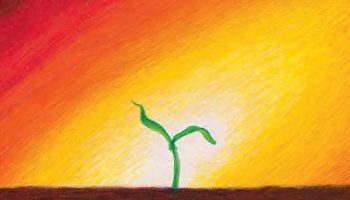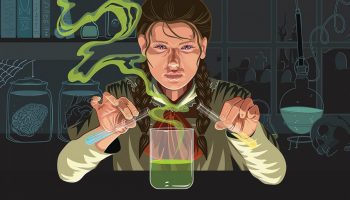Reading Cloud and Wallfish by Anne Nesbet, a fictional book based on Nesbet’s real experience in East Germany, is a great chance for kids to both learn about history during the Cold War and explore the idea of identity, according to Karen Schiavone, manager of Special Studies and Youth Programs, who selected this book to be on the CLSC Young Readers list.
 There will be a discussion on Nesbet’s Cloud and Wallfish for the CLSC Young Readers at 12:30 p.m. Wednesday, July 18, in the Poetry Makerspace on the ground floor of the Colonnade.
There will be a discussion on Nesbet’s Cloud and Wallfish for the CLSC Young Readers at 12:30 p.m. Wednesday, July 18, in the Poetry Makerspace on the ground floor of the Colonnade.
Two coordinators from the Abrahamic Program for Young Adults will lead activities and games on “identity” for the program.
The book is set in 1989 and tells the story of Noah, a 10-year-old American boy, and his parents moving to East Germany for six months. Along the way, he befriends his neighbor, Claudia. His parents changed Noah’s name to “Jonah” on their official documents for them to be safer because they knew that they were going to be under scrutiny in East Germany.
Although Schiavone said it is “very frustrating” for Noah when his parents gave him a new name, a new background and a new backstory, he sticks to his guns.
“This is who I am, this is me,” Schiavone said. “It’s very important to embrace who you are and be that person. Don’t let other people tell you who you are.”
Despite Noah’s identity being an American and being a boy with a stutter, Schiavone said, the circumstances of Noah “being where he is and when he is — in 1989 in East Germany” were the reasons he didn’t fit in at school in East Berlin. However, in the United States, the stutter would likely be the reason he doesn’t fit in.
“I thought that was interesting,” Schiavone said. “So often … I think in books where a child has some certain disability of some sort … the focus is on the disability rather than (the person).”
In addition to having a stutter, Noah also has a valuable trait — being suspicious.
“He had suspicions about his parents, about Claudia’s family. … He is very suspicious by nature,” Schiavone said. “He’s really good at continuously asking the questions.”
Schiavone said Noah’s parents have a rule for him: He can’t ask those questions in public while in East Germany.
At the end of the book, Nesbet wrote in her author’s notes that “when you read a nonfiction book, or nonfiction parts of fictional books, you have to stay as alert as any researcher (or spy).
“Truth and fiction are tangled together in everything human beings do and in every story they tell. Whenever a book claims to be telling the truth, it is wise (as Noah’s mother says at one point) to keep asking questions.”
Schiavone said it’s “such a good lesson for kids today.”
“Don’t ever take the truth for granted. Go find it. When there’s a news article out there that looks like it might not be true, check Snopes, check Wikipedia. We have so many resources at our fingertips now. We should all just keep asking questions. Don’t ever take the truth for granted.”
-Karen Schiavone, Manager, Special Studies and Youth Program




